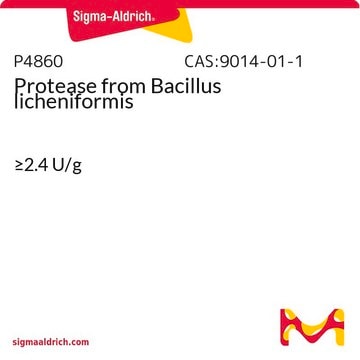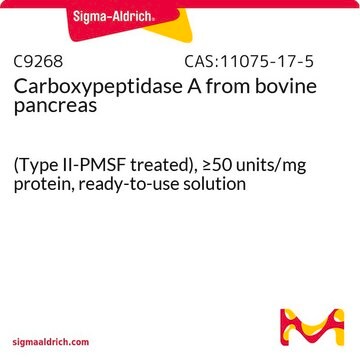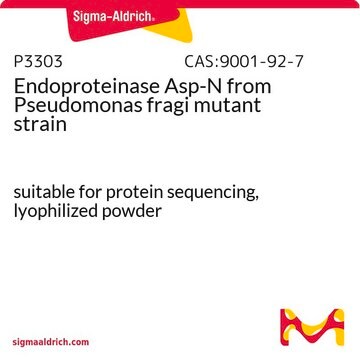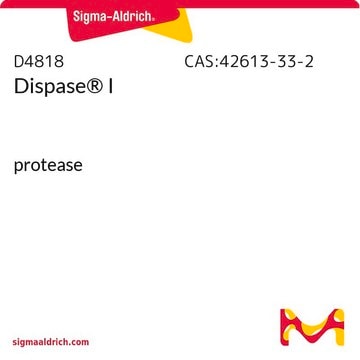P1512
Thermolysin from Geobacillus stearothermophilus
Type X, lyophilized powder, 30-350 units/mg protein (E1%/280)
Sinónimos:
Protease from Geobacillus stearothermophilus, Thermophilic-bacterial protease
About This Item
Productos recomendados
biological source
Geobacillus stearothermophilus
type
Type X
form
lyophilized powder
specific activity
30-350 units/mg protein (E1%/280)
mol wt
34.6 kDa by amino acid sequence
purified by
crystallization
shipped in
wet ice
storage temp.
−20°C
General description
Application
Quality
Unit Definition
Physical form
Preparation Note
signalword
Danger
hcodes
Hazard Classifications
Resp. Sens. 1
Storage Class
11 - Combustible Solids
wgk_germany
WGK 3
flash_point_f
Not applicable
flash_point_c
Not applicable
ppe
dust mask type N95 (US), Eyeshields, Faceshields, Gloves
Certificados de análisis (COA)
Busque Certificados de análisis (COA) introduciendo el número de lote del producto. Los números de lote se encuentran en la etiqueta del producto después de las palabras «Lot» o «Batch»
¿Ya tiene este producto?
Encuentre la documentación para los productos que ha comprado recientemente en la Biblioteca de documentos.
Los clientes también vieron
Nuestro equipo de científicos tiene experiencia en todas las áreas de investigación: Ciencias de la vida, Ciencia de los materiales, Síntesis química, Cromatografía, Analítica y muchas otras.
Póngase en contacto con el Servicio técnico













